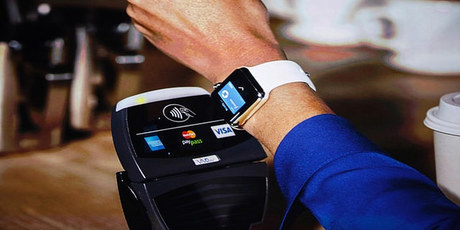ANZ first major Aussie bank to launch Apple Pay

ANZ has become the first major Australian bank to offer mobile payment service Apple Pay for its customers.
ANZ customers in Australia with an ANZ Visa debit or credit card or an ANZ American Express credit card will now be able to use the payment service wherever contactless payments are accepted.
The service uses Apple’s Touch ID fingerprint authentication system to authorise payments. In a further nod to security, Apple Pay does not store credit or debit card numbers on the device or on Apple servers. A unique, encrypted device account number is used instead.
In stores, Apple Pay works with the iPhone SE, iPhone 6s, iPhone 6s Plus, iPhone 6, iPhone 6 Plus and the new Apple Watch. Paying within apps, the service is supported by the iPhone 6 as well as newer iPads.
“The introduction of Apple Pay is a significant milestone in our strategy to use digital technology to provide our customers with a superior experience and will be a watershed moment in the adoption of mobile payments in Australia,” ANZ CEO Shayne Elliott said.
He noted that more than 60% of all card transactions in Australia are now contactless.
“With the high adoption rates of contactless payments in Australia, our customers will be world leaders in their ability to use their mobiles to make the vast bulk of essential payments.”
The launch comes soon after Apple reported its first decline in revenue for 13 years for its fiscal second quarter. The company’s revenue fell around 13% to US$50.6 billion.
Global iPhone sales fell 16% for the quarter despite the company launching the iPhone SE at the tail end of the period.
Gross margin also declined slightly to 39.4% from 40.8%. But Apple still reported a quarterly net income of a hefty US$10.5 billion.
Howard Yu, professor of strategic management and innovation at executive education provider IMD, said Apple’s performance for the quarter represents the dangers of relying on a single product — in this case, the iPhone — for growth.
“Under Steve Jobs, Apple had a track record of cannibalising its own products. [For example,] while iPod sales were still going through the roof, Jobs launched the iPhone, which combined iPod, cell phone and internet access into a single device... So resolute was Apple’s determination in trading a highly profitable business for an unknown future that Jobs reportedly said ‘If you don't cannibalise yourself, someone else will’,” he said.
“That mantra has apparently disappeared. With Tim Cook, Apple has experienced unmitigated growth by exploiting its market position in emerging countries... What managers often fear most is when a company’s new products and services with lower profit margins directly cut into the sales of existing ones. Apple is now in danger of falling into the same pattern of thinking.”
If it gains enough traction, Apple Pay could help the company reduce its reliance on the iPhone for growth.
IoT demands alternatives as 3G sunset looms
The impending 3G shutdown is a daunting prospect for organisations across ANZ that rely on...
Broadband measurement shows online gaming stacks up
The ACCC's latest Measuring Broadband Australia report has found that consumer connections to...
BlackBerry stopping one cyber attack per minute
A new report from BlackBerry's Threat Research and Intelligence team highlights the...




